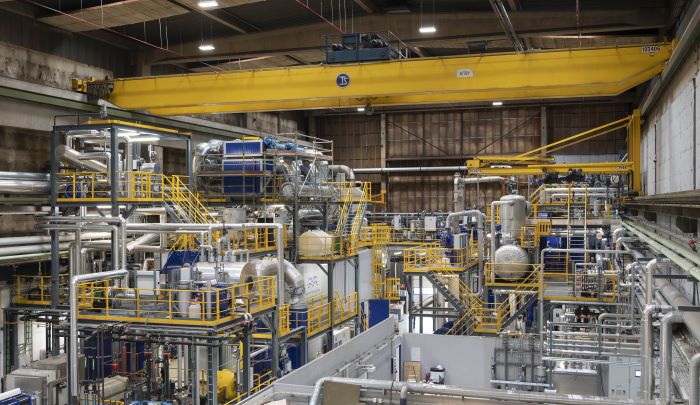

In Q2 of 2022, Alfa Laval started up a small-scale methanol fuel cell system at the Alfa Laval Test & Training Centre. Based on positive test results, the project is on track for a 200 kW installation. Ultimately, it will provide the marine industry with a scalable energy supply that does not involve combustion.
Fuel cell system development is proceeding as planned
Alfa Laval is the driving force in a marine fuel cell development project funded by Danish EUDP (Energy Technology Development and Demonstration Program). The project’s aim is an efficient and cost-effective energy solution based on high-temperature proton exchange membrane (HT-PEM) fuel cells. In the first step, a 10 kW (2 x 5 kW) installation has been running at the Alfa Laval Test & Training Centre since July.
“We are pleased with the progress in the HT-PEM fuel cell system project,” says Alfa Laval’s Jeroen van Riel, Business Development Manager, Marine Energy Solutions. “Although this first installation is small, it allows us to test the basic setup and the function of the supporting equipment. The data compiled so far is very promising, which suggests that we can move into the next stage as planned.”


Scalable power without fuel combustion
The fuel cell system in development, which will provide clean operation with no particulate emissions, uses carbon-neutral renewable methanol. It comprises modules of HT-PEM fuel cell stacks that can be combined in racks of 200 kW, creating a standardized, scalable system for many megawatts of power. Alfa Laval is responsible for the overall system infrastructure, as well as the distribution systems needed to support the fuel cells.


In the current phase of testing, two modules containing one fuel cell stack each are being run with the distribution systems. The operational data will then be used to fine-tune the 200 kW module and rack setup.
“The project will lead to an integrated, safe and marine-certified product for application on tomorrow’s green ships,” says van Riel . “Within the near future, it will offer a realistic alternative to combustion-based auxiliary power on board.”
Press Release










We believe that knowledge is power, and we’re committed to empowering our readers with the information and resources they need to succeed in the merchant navy industry.
Whether you’re looking for advice on career planning, news and analysis, or just want to connect with other aspiring merchant navy applicants, The Marine Learners is the place to be.